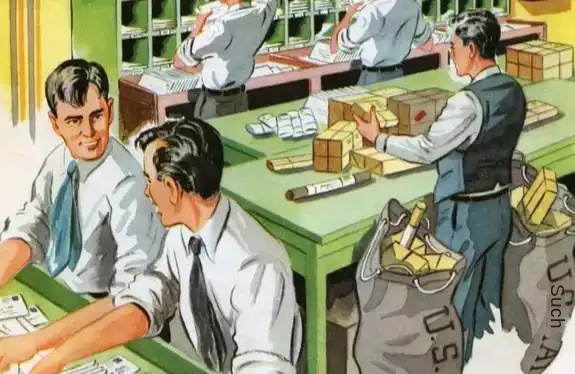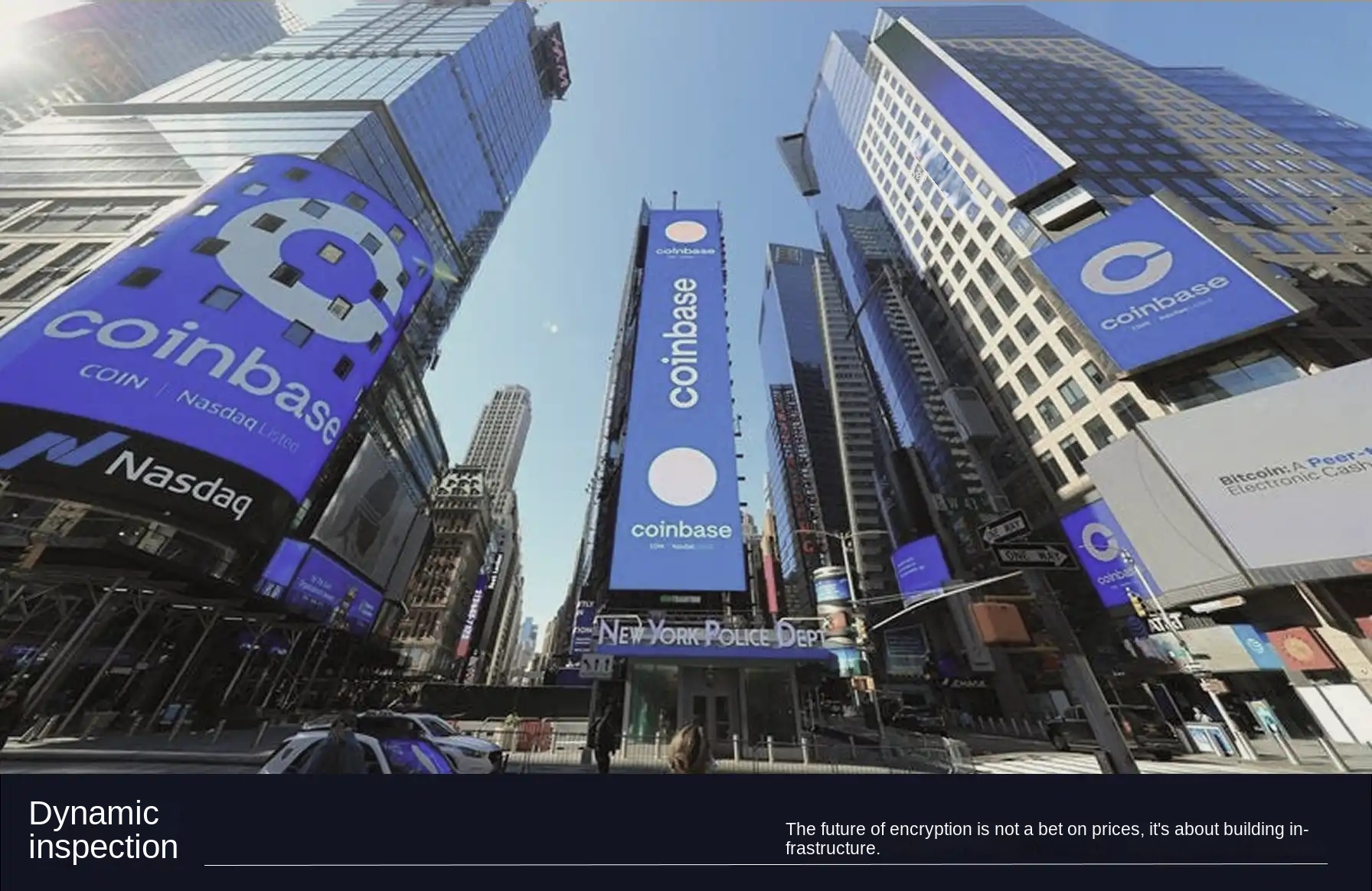Interview with Chris Dixon, partner at a16z: Detailed discussion on bear market, regulation and real Web3 use cases
Original title: " Bankrolling the Blockchain with a16z Crypto "
Original Source: TechCrunch
Original Compilation: Guo Qianwen, ChainCatcher
Moderator: Cryptocurrency Experience It's been an interesting year, full of turmoil. It might be a good time for investors. Looking ahead to next year, regulation will likely be a concern, and there will be a lot of news about portfolio companies and tokens. If the SEC increases regulation, start paying attention
Token ,startup company bonds, NFT, etc., will this fundamentally change web3? In other words, will the mechanics of Web3 still work?
Chris Dixon: Yeah, a lot has happened this year. I have been in this field for about ten years. Everyone actually knows that this field has been going back and forth like this, "winter goes and summer comes", maybe it is winter now?
I think the core question to focus on is applicable to any field of technology - what kind of products to build, what kind of infrastructure to build, which entrepreneurs on admission. In fact, I also experienced the so-called "Web2" revolution in 2000, so this is what I have always believed in. We've been focused on it, so we've been able to make progress; there are a lot of entrepreneurs working on building the infrastructure, so the infrastructure is getting better and better.
You mentioned the issue of regulation. We have long been advocates of "smart regulation". This is true in any field, especially when it comes to Token When there is money and money, there are bad actors, and regulators must step in to stop them.
We have 80 years of case law, we have the SEC, and the famous "SEC v. Howey Case" by the Supreme The court ruling finally stipulated that all our projects must hire a team of lawyers to ensure compliance.
That being said, I still feel that it would be better if everything was clearer and more defined. The current law enforcement, laws and regulations are actually a bit arbitrary. So Congress now has many bills to make these things clearer and explain some legal situations. This is a good thing, it clearly allows founders to understand the rules, and then follow the rules, to innovate.
I was on the board of Coinbase for seven or eight years, from 2013 until its IPO. It's odd that Coinbase invests heavily in compliance, but many of its competitors don't. This is actually quite frustrating, because if there are no clear terms, many times people will choose to bypass the rules in order to pursue more interests. That's sad for good actors who play by the rules. So for those reasons, we're more actively in discussions with policymakers to advocate for regulation. In fact, some things that happened last year were due to unclear supervision and inadequate law enforcement.
Moderator: If the SEC starts looking at, say, Ethereum, they seem to be very concerned about that, or in general
Token or NFT projects (people feel that these projects may be successful in the future). If these most basic things are questioned, in other words, if Web3 does not have these things, what selling point will Web3 have?
Chris Dixon:Securities laws are enacted by Congress and ruled by the Supreme Courts. There are many assets in the world that are not securities, such as real estate, commodities, and gold. Securities are actually a class of assets in which information asymmetry exists. For example, Apple stock is different from ordinary assets. Some Apple stock holders may know more information about the company than others. Of course, there are also a series of relevant laws and regulations to disclose these things. So the SEC issued a statement a few years ago, proposing the concept of "full decentralization", which refers to a high degree of decentralization. For example, I think Ethereum and Bitcoin have a high degree of decentralization, and their essence is more like gold. Not Apple stock. Of course there will be people who write code and maintain the system, but no one knows what the price will be tomorrow. Therefore there is no need for disclosure as no one has privileged access to specific information. This is how case law has worked for the past 80+ years.
We think this is smart rules, when there is information asymmetry, we really need regulation. The SEC also stipulates that there should be no information asymmetry in our projects, and we must abide by these rules. Regulatory staffing departments change all the time and opinions vary, but fundamentally the rules are determined by Congress and jurisprudence.
Moderator: I feel that Web3 is now more like a meme culture (meme), and everyone is talking about what is the real Web 3 in the technical circle Example? I was wondering, do you have a specific vision for the future?
Chris Dixon: A very obvious example is creating new ways of monetizing for creators. If you look at the creative networks in the Web2 world, like Instagram, etc., artists create content, but they are not part of the company themselves. These networks can provide creator tools and social platforms, but the ultimate content creation comes from creators. The content of these creators makes these platforms monetize through advertising, but the revenue hardly goes to the creators, or it is pitifully small. Of course, YouTube may do better, and creators can get half of the income. But if you look at the general situation, 50% is very difficult to get. Twitter, Ins, TikTok will take all the revenue. So an obvious use case is to enable creators to connect directly with audiences without intermediaries, so that they can directly receive revenue.
Many people describe it as a new computer and Internet movement, thinking that it is a way to solve problems, just like we invent the bottle opener or kitchen utensil to solve The problem is as simple as that. But it is not.
After the invention of the first computer, has the problem been solved? Maybe not. If we look at commercials from the 80s, like Apple's commercials, it's kind of funny. A couple are in the kitchen with a gigantic computer on the table that they want to use to make recipes but don't know how to use it. The developers came to their rescue. They invented spreadsheets, then word processing software, Photoshop drawing software, etc., which is the way to solve problems with computers.
Then came the mobile phone, did it solve the problem? Sort of, but it was actually the advent of apps that really solved the problem and allowed people to be creative in new ways.
Jobs compared the computer to a "Bicycle for the Mind", which can do some things that humans are good at and help humans solve problems. Make people more efficient and productive. I see this as a positive impact of computers on the world. To understand this, you have to study the history of the sport, understand how it works, build and improve computers, invest in both infrastructure and applications, so that problems can be solved.
Creators are currently not being paid properly on the internet and this needs to be addressed.
Moderator: Four years ago we asked you to come on stage, we talked a lot about Facebook (Meta), such as Libra and DM function, they pay attention Stablecoins, many elements of the blockchain, are now starting to focus on the Metaverse, do you think there is room for Meta to develop?
Chris Dixon: Among the big tech companies, Meta is the only one still run by the founders I also like this company very much, they have done a lot of innovation. I think tech companies should invest in the future, what's the point of making that much money if you can't drive the future forward? They invested a lot of money to support the development of VR, metaverse. Hardware is hard to build and requires a lot of money. At the same time, I have seen many startups have made great achievements, whether it is in terms of cryptocurrency or metaverse. I'm looking forward to seeing the metaverse develop in a decentralized way, just like the early days of the Internet.
If there is a metaverse in the future, people spend five hours a day in it, and it's all controlled by one company, it's a disaster. I hope that it can exist in the form of a network, and anyone can build a metaverse of their own, create their own company, and carry out development work. This is the exciting future, which is also the direction of our investment and encouragement. So I think they deserve credit for that because they're investing more in things like artificial intelligence than some other companies. Of course artificial intelligence is also very good, but this has long been a well-known consensus, and these things are no different from what Google and Microsoft do.
Moderator: You invested a lot of money in Adam Newman, why?
Chris Dixon: My partners Mark and Jason have written a blog to explain, if you want more details Learn more by looking at their blogs. From my perspective, I think he is one of the few young founders in the world who have really built a real estate brand. There's been a lot written about him, but we've done our own research and concluded that I think time will tell that he's worth investing in.
Moderator: In the context of investment, when the market is hot, everyone is in high spirits, talking happily about their business, crazy Shopping, etc., but everyone seems to be less motivated now. Do you think the market will recover? Especially the last few months it seems to you that the market is also slowing down.
Chris Dixon: I'll put this into a larger context and I've In 20 years in the tech industry, I've had five downturns. Counting the ten years of cryptocurrency, there have been 3 crises in cryptocurrency. Before this was the financial crisis in 2008 and, before that, I founded a Web2 company in 2004, which also experienced a decline. At that time, Amazon’s stock price fell to 1.5% of the current level. Such news was overwhelming. In short, the entire The situation is very depressed.
What I've learned from this is that if you want to make a difference as an entrepreneur, you have to embrace the ups and downs. If you just blindly follow the trend and enter the hot field, you may not be able to make interesting things.
I started an artificial intelligence machine learning company in 2008, which was later acquired by Ebay. Although we were at a very early stage, we believed that artificial intelligence had a bright future. So I think it is normal to go through cyclical changes. During this process, you have to focus on products and technologies, and how to create breakthrough products so that technologies can benefit users.
To build a good product, the most important thing is people, specifically entrepreneurs and developers. In this regard, cryptocurrencies are performing very well. We did a data report that records the number of developers on GitHub and other sites, and it seems to be going well.
We do venture capital and pay more attention to long-term interests, starting at least ten years. We believe that as long as you can create value and products, you will be successful. But how long it will take is hard to say.
Moderator: Now that the market is slowing down, what are your internal priorities?
Chris Dixon: There are a lot of people interested in this field right now who are eager for more guidance and information. What I want to announce is that we established an encryption entrepreneurship school two years ago, which was originally offline, but was later affected by the epidemic. We have about 50 people, talking to each other, and there are many guests, such as Brian Armstrong, our colleagues in the company, etc., and everyone discusses different areas of cryptocurrency, such as legal, organizational, marketing, etc. The video content is posted online for free, has over a million hits, and our students have received $300 million in investment from major companies.
So we're starting the program again, and if you go to our website, you'll see that applications are open. It will be held in Los Angeles in March, and you can also see our list of invited guests and mentors on the website. The difference from last time is that this time we will provide funds and buy equity, which is also like an accelerator project. It is an educational project, but it will provide funds. We hope to provide some training to entrepreneurs in the encryption field, so that everyone can create a real cryptocurrency.
This is not a "Master Program" and there are no specific requirements. We hope to communicate with entrepreneurs as much as possible. No matter which industry you are in or what you do, as long as you are interested in this industry, we encourage you to apply.
Moderator: I talked to Katherine Hahn last year. Go start your own company. This is not good news for your company, to be honest, right?
Chris Dixon: Let me give you an analogy. When I co-founded a seed fund in 2008 or 2009, there weren’t many such funds, so it was sort of an avant-garde movement. We had 10 to 15 of these funds at the time, supporting each other and investing in each other. If the sport is going to grow, you need a lot of these funds working together, and now we have grown, maybe 500 seed funds. The same is true now. There are not many crypto funds on the market. Kath has made a lot of contributions in this field, especially in terms of supervision. It is also a good thing that she wants to start a business, because we have all started a business before, which is normal. .
Moderator: You can be regarded as one of the best investors in the world. Don’t you want your name to be remembered?
Chris Dixon: I don’t really care about that, I care about our sport being successful , able to work with competent people. I have been in the company for 10 years, I have always had a good relationship with Mark and Ben, and the company has a lot of support for some of my experimental ideas-in fact, I not only invest in cryptocurrency, but also invest in artificial intelligence, VR, etc. This is the spirit of the company and why I joined the company. A lot of VCs just give you money and leave it at that. But our company wants to do more. Our encryption team has 80 people, and about 65 people do operations work, just to help the company develop.
Moderator: Judging from the current stage of the company, Mark has indeed done a lot of things, but it seems that he has gradually let go of daily affairs. ?
Chris Dixon: This is a misunderstanding in the media. I've been working with everyone, they're so engaged, they work every day. In fact, everyone is also actively meeting the founders, understanding their ideas, establishing funds, etc. For example, we have established a game fund. We hope to provide one-stop service for entrepreneurs, and everyone has been actively doing things. So this is a misunderstanding. Mark should have tweeted before to explain that he has a very full schedule now and has a lot of work to do. If you want to retire, you should retire early. This is why I think the technology field is very interesting, because there are new developments, new technologies, and new looks every day, and interesting things can be developed every day, which is why everyone is so motivated.
Moderator: Talk about your personal twitter, we all know you are a staunch defender of Web3, you even hit back if someone questioned , why do you take a very private attitude in this matter?
Chris Dixon: I think I'm more of a twitter guy who has gone sour. We have invested in a decentralized social protocol called Farcaster, which I usually use more. Because people can communicate and do things on it, Twitter is now full of attacks, maliciousness and gossip. This site also has a lot to do with politics, but my own attitude is that technology is the only thing I care about, both in my online life and in my private work.
Original link
Welcome to join the official BlockBeats community:
Telegram Subscription Group: https://t.me/theblockbeats
Telegram Discussion Group: https://t.me/BlockBeats_App
Official Twitter Account: https://twitter.com/BlockBeatsAsia


 Forum
Forum Finance
Finance
 Specials
Specials
 On-chain Eco
On-chain Eco
 Entry
Entry
 Podcasts
Podcasts
 Activities
Activities
 OPRR
OPRR







